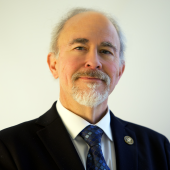
Researching Scottish Ancestors
Scots have been migrating to and settling in America and Canada for centuries. Today, there are an estimated 25 million Americans of Scottish descent. Tracing your Scottish heritage is rewarding, but not without its challenges. This four-session online seminar will provide you with key historical context, strategies, and resources setting you on the right path to trace your ancestry back several generations in Scotland.
This course includes five 90-minute classes, Q&A with the instructors, and exclusive access to handouts.
May 1 - Class 1: Origins and Journeys: Migrations to the U.S. and Canada
Presented by: Melanie McComb
Many Americans and Canadians have Scottish ancestry. Determining exactly where in Scotland your ancestors came from, however, can be the hardest part of researching them. By understanding the history of Scotland and the many waves of emigration, you can start to narrow down possible origins. This first class reviews the many waves of Scottish immigration and the push-pull factors that led them to making their way to America.
May 8 - Class 2: Civil and Parish Records in Scotland
Presented by: Rhonda R. McClure
Researching civil registrations and church records of births/baptisms, marriages, and deaths is often the first thing that family historians do when they learn they have ancestry in Scotland. In this session Rhonda R. McClure reviews what information is provided in each record type and how to locate and access these resources.
May 15 - Class 3: Using the Scottish Census & Census Substitutes
Presented by: David Allen Lambert
Scottish census and census substitutes can provide important details about the immediate family of your ancestors. This class reviews what censuses exist, what information they provide, and where to access both transcriptions and digitized images.
May 22 - Class 4: Other Scottish Records
Presented by: Rhonda R. McClure
Beyond vital, church, and census records there are several other resources that are useful to family historians—many of which are underutilized. This class covers wills and testaments, land records, court records, military records, and occupational records.



